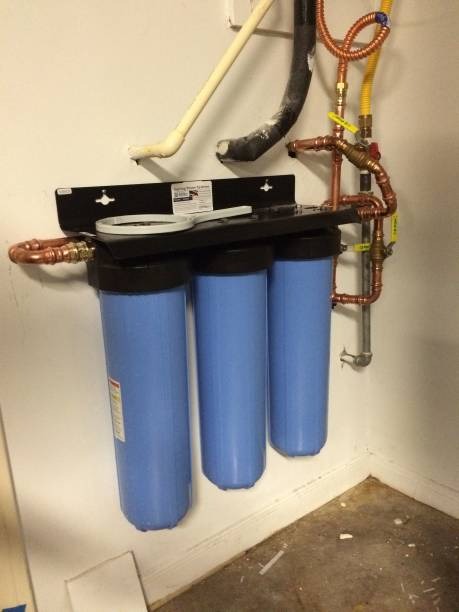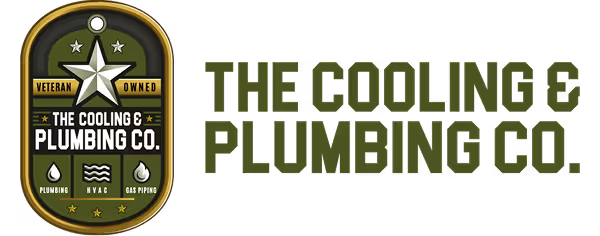Salt Free Water Softener in Cave Creek, AZ
Keeping mineral scale out of your pipes, fixtures, and water-using appliances is important in Cave Creek homes. A salt free water softener offers a low-maintenance, sodium-free way to control scale buildup without changing the mineral content of your water. Below is a clear, expert guide to how these systems work, when they make sense for local homeowners, what installation and upkeep look like, and realistic performance expectations and warranty considerations.

What is a salt free water softener and how it works
Salt free systems do not remove calcium and magnesium (the minerals that cause hard water). Instead, they use physical or chemical processes to change the way minerals behave so they do not form hard, adherent scale.
Common salt free technologies:
- Template assisted crystallization (TAC): Converts dissolved hardness ions into microscopic crystals that stay suspended and are carried through the water, preventing hard scale from attaching to surfaces.
- Chelation or polyphosphate dosing: Adds a food-grade compound that surrounds minerals to reduce deposit formation (best for low- to moderate-hardness and when corrosion inhibition is desired).
- Electromagnetic or catalytic coil systems: Alter mineral behavior through electromagnetic fields or catalytic surfaces (performance varies by water chemistry).
Key point: salt free systems prevent scale formation; they do not produce the “slippery” soft-water feel you get from salt-based ion exchange systems because minerals remain in solution.
Why Cave Creek, AZ homeowners consider salt free systems
Cave Creek and the surrounding desert communities typically draw from groundwater sources with moderate to high mineral content. That leads to:
- Scale on faucets, showerheads, tile and glass
- Reduced efficiency and life of water heaters, ice makers, and dishwashers
- More frequent cleaning and mineral staining
A salt free option is especially attractive in Cave Creek when you want:
- No added sodium in drinking water
- Minimal routine maintenance
- A solution that is compatible with septic systems and landscaping
- A scale-control approach that does not require a drain or continuous water for regeneration
Ideal applications and limitations
Ideal uses:
- Protecting water heaters, plumbing, and fixtures from new scale buildup
- Homes on septic systems or where salt discharge is a concern
- Homeowners who prefer low maintenance and no salt handling
- Pre-treatment ahead of water purification or to protect appliances
Limitations to understand:
- Salt free systems do not remove hardness minerals or lower total dissolved solids (TDS). They prevent scale but won’t give you “soft-feel” water.
- Not a reliable solution for heavy iron, manganese, or high sediment. These require filtration or specialized treatment first.
- Existing heavy scale may need mechanical or chemical removal before a salt free system can show full benefits.
- Performance depends on water chemistry—testing is recommended before choosing equipment.
Diagnostic checklist before choosing a system
- Test water hardness, iron, manganese, and TDS levels. This determines if salt free equipment is appropriate or if pre-filtration is required.
- Inspect existing scale on fixtures, heating elements, and appliances to set realistic expectations.
- Assess household needs: number of occupants, appliance types, and whether occupants want true softened water.
- Check plumbing layout and space where the unit will be installed (near the main water line, cold-water inlet).
Installation and minimal maintenance
Installation snapshot:
- Typically mounted on the main cold-water line inside a utility area or garage.
- No drain or brine tank required. Unit is plumbed with shutoff and bypass valves for easy service.
- Pre-filtration (sediment or iron filters) may be installed upstream where needed.
Routine maintenance:
- Annual visual check: Inspect fittings, pressure relief, and any pre-filters.
- Replace cartridges/media as recommended: Many TAC media units require change or reconditioning every 3–10 years depending on model and water conditions. Polyphosphate cartridges may need replacement yearly.
- Pre-filter maintenance: If you have sediment or iron filters, follow the manufacturer’s replacement schedule to protect the salt free unit.
- No salt refills, no backwash cycle, and no regular water discharge from regeneration.
Performance expectations
- Expect a measurable reduction in scale buildup on heating elements, faucets, and showerheads within weeks to months, depending on water usage and existing deposits.
- Appliances typically run more efficiently and require fewer descaling cleanings long term.
- Soap and detergent performance may improve slightly, but you will not get the full lather/feel of ion-exchange softened water.
- Long-term effectiveness is best when combined with proper pre-filtration for sediment and iron; otherwise, coatings or sediments can reduce system life.
Comparison: Salt free vs salt-based water softeners
Salt free:
- Prevents scale without adding sodium
- Low maintenance (no salt, no regeneration, no drain)
- Good for septic systems and irrigation
- Does not remove hardness minerals; does not reduce TDS
Salt-based (ion exchange):
- Removes calcium and magnesium to produce true soft water (feel and soap performance)
- Requires salt, regular regeneration, and drain line
- Better for very hard water where “softness” is a priority
- Adds sodium to softened water (concern for low-sodium diets or plants)
Choosing the right system depends on whether you prioritize scale control and low maintenance or true soft-water feel and laundry/soap performance.
Warranty and product expectations
- Manufacturer warranties vary by technology and model. Typical warranties range from 1 year on some components to 5–10 years for premium tanks and media housings.
- Warranties often require professional installation and adherence to recommended maintenance schedules to remain valid.
- Ask for the specific product warranty details and documentation for media life, replacement intervals, and coverage of housing or components.
Final considerations for Cave Creek homeowners
A salt free water softener is an effective, low-maintenance option to protect plumbing and appliances from mineral scale in Cave Creek homes, especially if you want to avoid added sodium and the upkeep of salt-based systems. To make the right choice:
- Start with a water test to confirm hardness and contaminant levels.
- Consider pre-filtration if your water has sediment, iron, or manganese.
- Match system technology to your goals: scale prevention and low maintenance vs. true soft water.
- Review manufacturer warranty terms and service requirements to ensure long-term performance.
Choosing the right system is a technical decision best made after a local water assessment and a review of household needs. This ensures the solution you install will deliver the expected scale control and protect your home’s plumbing infrastructure in Cave Creek’s desert environment.






